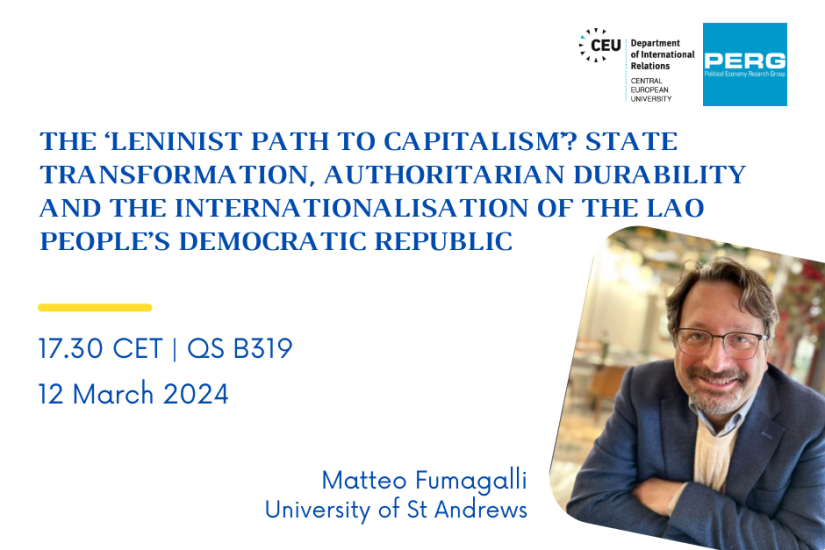
Abstract /
Along with China, North Korea, Cuba and Vietnam, Laos is one of the world’s five remaining socialist countries. Just like its immediate neighbours, this small, landlocked (and under-studied) Southeast Asian country embarked on a trajectory of accelerated state-driven economic transformation. This process, however ridden with contradictions and tensions, ensured rapid growth and the durability of the regime, centred on the role of the party-state.
In this talk, as I seek to intervene in and contribute to debates on authoritarian durability and extractivist capitalist transformation, I examine the drivers behind the transformation of the Lao PDR from the phase of state socialism to contemporary neoliberal authoritarian governance. Over more than three decades, Laos has leveraged international support, investment in regional connectivity projects and infrastructural development to emerge as an increasingly internationalised state while simultaneously being both illiberal and neoliberal. In this seminar I show that the Lao PDR fuses illiberal authoritarian governance with the adoption of a neoliberal economic model predicated on natural resource exploitation and foreign investment. While the party-state still proclaims its commitment to the ideal of socialism (central to its legitimation strategies), the reality is one of full participation in neoliberal globalisation. What defines contemporary Lao economic development, I argue, is a model centred around energy megaprojects, including rail and road projects and dams. Laos’s stated aim to lift itself out of the least-developed country category and — to this end — become the ‘battery of Southeast Asia’ forms the ideological and discursive justification for this process of capitalist transformation, which has profound consequences for both state and society. Socialism and capitalism co-exist on the banks of the Mekong river.
Bio /
Matteo Fumagalli is Associate Professor in the School of International Relations at the University of St Andrews, where he also serves as Dean of Graduate Studies for the Scottish Graduate School of Social Science. He received his PhD from the University of Edinburgh and has worked, besides Edinburgh (2005-06), at University College Dublin (2006-07), Central European University (2007-2017) and the University of St Andrews (2004-2005; 2017-). He has held visiting positions at the National University of Singapore, the University of Macau and the National Chengchi University in Taipei.
Matteo’s main interests lie at the intersection of comparative authoritarianism, ethnic conflict, and energy and environmental politics. His geographic areas of interest are the former Soviet Union (particularly Central Asia and the Caucasus) and mainland Southeast Asia (particularly Myanmar and Laos). In his recent work he has focused on conflict, warscapes and fragmented sovereignties in Myanmar, the 2021 coup’s implication for aid delivery to the country, and state transformation in countries of the Global South. Beyond that, Matteo has also published on minorities, diasporas and irredentism in the post-Soviet space, including on indigenous and non-indigenous (settler and resettled) minorities in Central Asia.